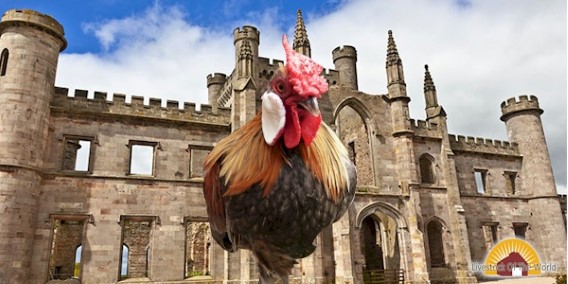Rosecomb
chickens are true Bantams with a very distinctive comb. They are one of the
oldest and most popular bantam breeds in showing, and thus have numerous
variations within the breed. An ornamental chicken, they are poor egg layers
and not suited for meat production.
The earliest
surviving records of Rosecomb chickens are from the 14th century in Britain,
though it may have another point of origin. Their popularity as an ornamental
breed first took was after King Richard III began to raise them. Their
popularity among poultry enthusiasts continued in to the 19th century, and
Rosecombs were shown at the first North American poultry exhibition in 1849, as
well as being admitted in to the first edition of American Standard of
Perfection in 1874. Today their widespread keeping by breeders persists.
Rosecombs are almost
exclusively kept for competitive poultry showing, and their characteristics
reflect this. Males generally weigh 570–620 g (20–22 oz) and females 450–510 g
(16–18 oz). They have relatively large white earlobes, prodigious tails, and a
compact body shape. They appear in 25 different color variations; although
black, blue, and white are the most common.
Due to a
genetic trait tied to rosecombed chickens, roosters may have low fertility.
Hens rarely are inclined to brood their own clutches, and chicks have high
mortality rates. However, adult birds are generally hardy and active. They are
good fliers. They are also usually friendly birds, but roosters may be
aggressive.

